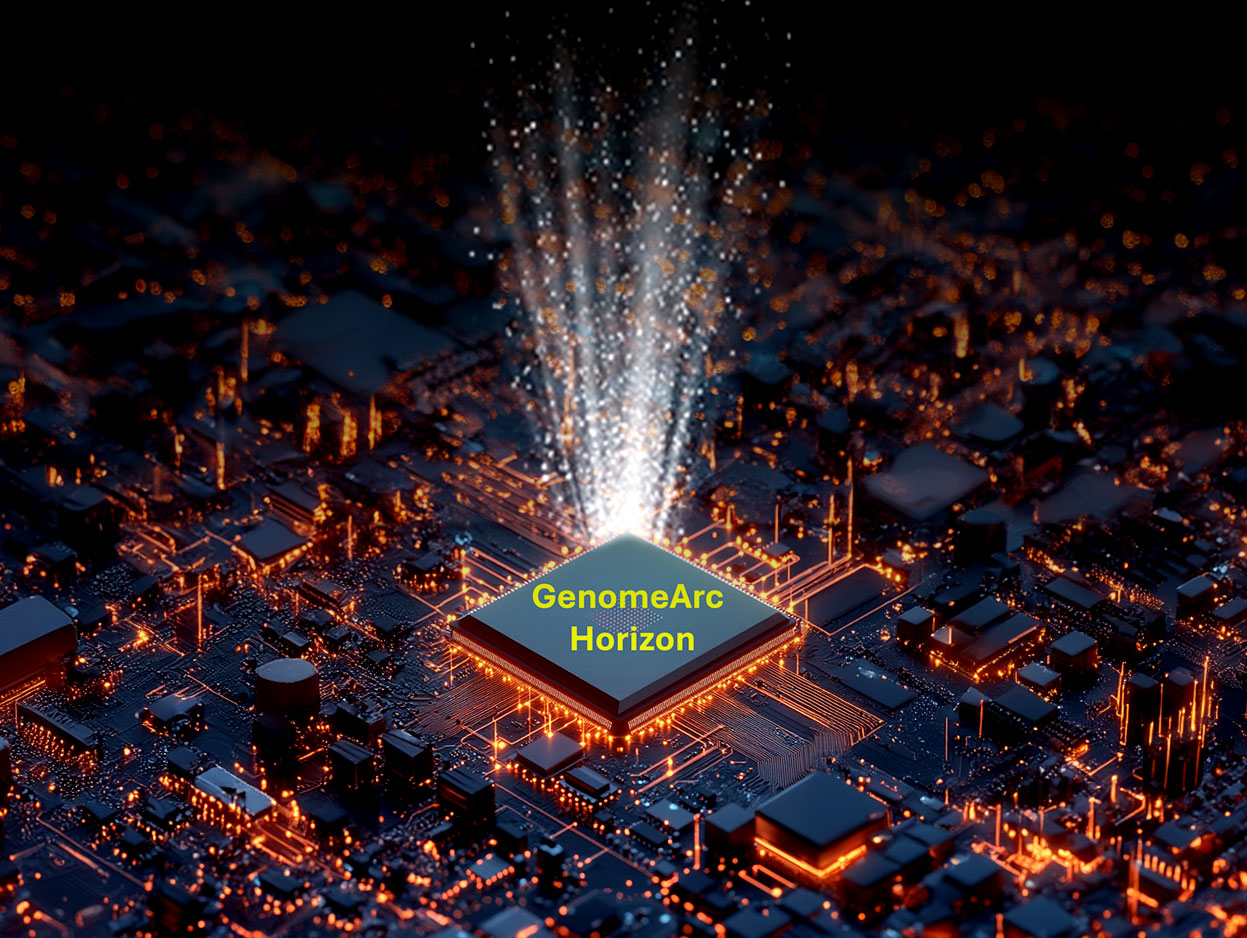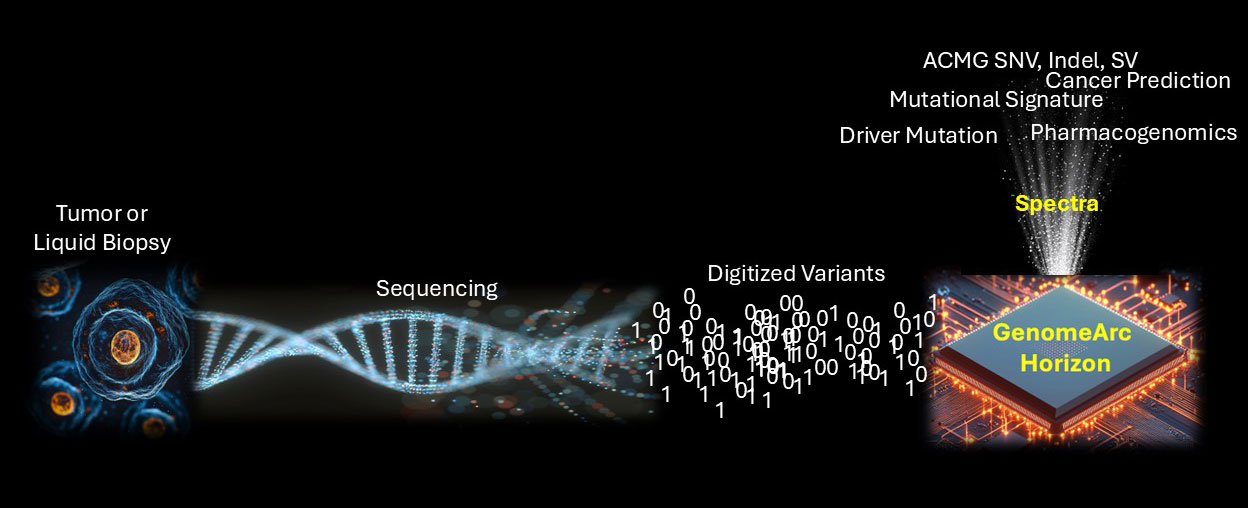
GenomeArc Horizon Spectra Module: Accelerating Cancer Insights from Germline, Tumor or Liquid Biopsy Whole Genome Tertiary Analysis in Minutes
Somatic mutations are genetic alterations that occur in non-reproductive cells after conception, leading to changes in the DNA sequence. These mutations can disrupt normal cellular functions by activating oncogenes, which promote uncontrolled cell division, or by inactivating tumor suppressor genes, which normally regulate cell growth and repair damaged DNA. When such mutations accumulate, they can lead to the formation of a tumor, a mass of abnormal cells. Over time, additional mutations may enable the tumor cells to invade surrounding tissues and spread to other parts of the body, a process known as metastasis, ultimately resulting in cancer. In 2022, there were an estimated 20 million new cancer cases and 9.7 million deaths (source WHO). Early detection of cancer through newer technologies is the key to implementing preventive treatment measures.
Liquid biopsy is a new technology with a minimally invasive approach that analyzes circulating tumor DNA (ctDNA) or other biomarkers in bodily fluids, such as blood, to detect cancer at an early stage. Unlike traditional tissue biopsies, liquid biopsies can be performed more easily and frequently, allowing for the early detection of cancer before symptoms appear. Early detection through liquid biopsy offers significant benefits, including the potential for less aggressive treatment, improved survival rates, and better monitoring of treatment response.
The GenomeArc Horizon platform features an advanced analytical module named Spectra, which delivers rapid and comprehensive insights for ACMG variant pathogenicity guided cancer genomic diagnosis (from germline and paired tumor/blood vcf files), pattern of somatic mutational signatures, and pharmacogenomics to aid treatment options for cancer prevention. Spectra algorithms optimized for liquid biopsy targeted or whole genome (>5 million) variants analysis within minutes, enabling the identification of specific mutation signatures that can indicate the presence of cancer type and predict its cellular progression. By analyzing these genetic variations, Spectra also provides valuable pharmacogenomic information on mutated genes and drug options. This capability not only enhances the accuracy of cancer diagnosis but also empowers healthcare providers to implement targeted interventions and preventive measures, ultimately improving patient outcomes and reducing the risk of cancer development.

GenomeArc Horizon’s Spectra is a comprehensive module, designed to analyze germline, tumor, and liquid biopsy samples, offering a complete solution for cancer genomics insights. Spectra implements multiple prediction algorithms to bring full scale predictive insights from liquid biopsy sequenced variants. By integrating data from various sources, Spectra provides a thorough understanding of both inherited (germline) and acquired mutations (tumor/liquid biopsy), enabling detailed analysis of cancer-related genetic changes. GenomeArc Horizon is set to revolutionize cancer care with Spectra, delivering rapid tumor and liquid biopsy variant interpretation to save lives and transform the future of oncology.
GenomeArc Inc. is a biotech company on clinical genetics and drug discovery headquartered in Mississauga, Ontario. The company began its journey in 2021, GenomeArc develops artificial intelligence integrated solutions for genetic diagnosis and genomic drug development solutions for rare genetic disorders and pan cancer. As a research-oriented biotech company, GenomeArc brings new insights into rare diseases, cancer diagnosis, and therapeutics through genome analysis. The GenomeArc team is constantly innovating technologies to solve phenotypic complexities in genetic variations for rapid intervention. As a global company, our aim is to make efficient and accurate genome medicine technologies accessible for all healthcare systems.
See more Blogs: